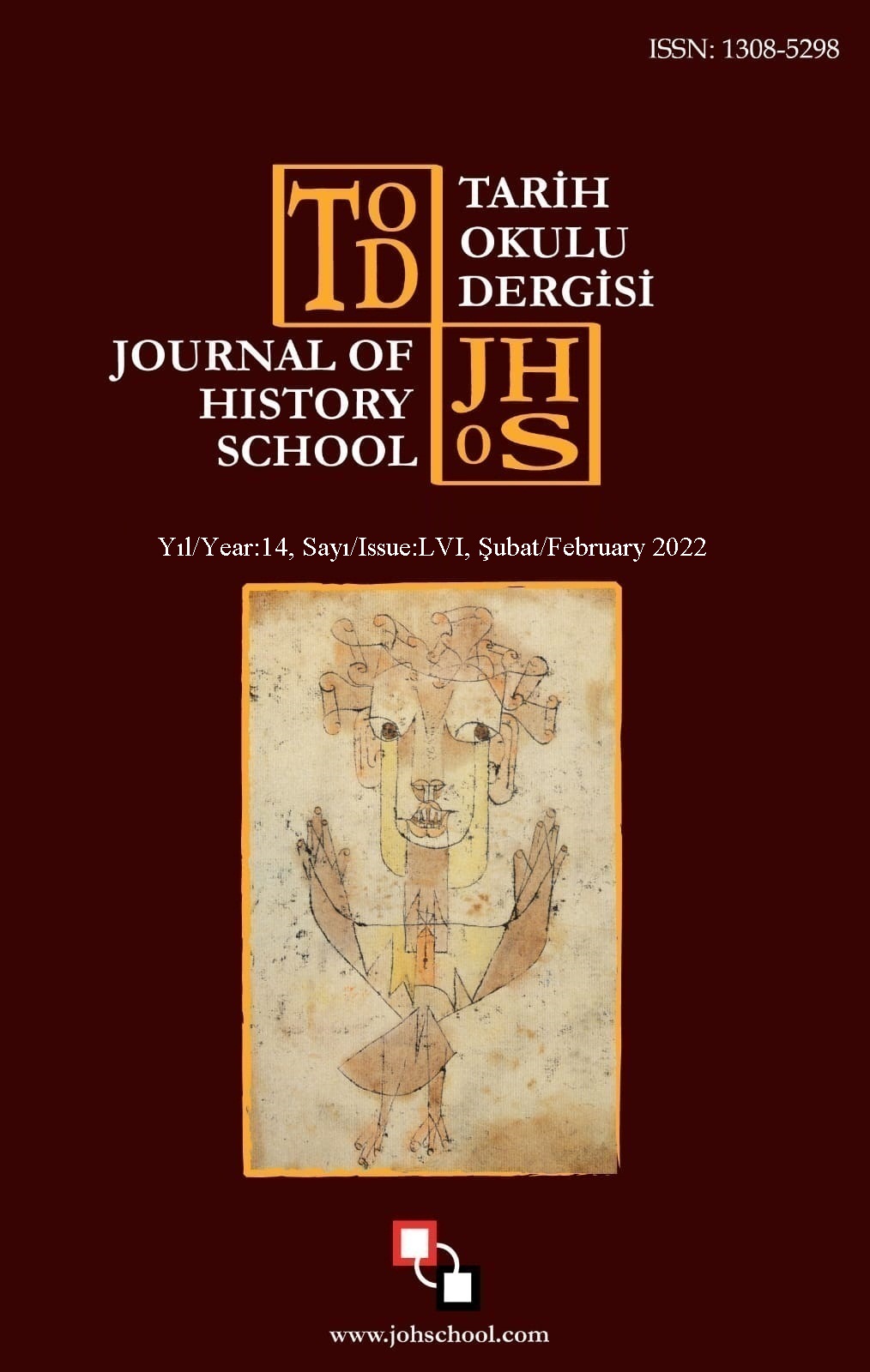Author :
Abstract
Vladimir Fyodoroviç Odoyevski (1803-1869) XIX. yüzyıl Rus edebiyatında romantizm akımının en önemli temsilcilerinden biridir. Odoyevski gençlik yıllarında bilhassa Alman idealist felsefesi ve Schelling’in zıtlıklardan oluşan doğa felsefesinin etkisi altında kalır. Eserlerinde Rus ve Batı kültürünü harmanlayarak yansıtır. Bu nedenle çağının diğer yazarlarından ayrılmaktadır. Kendisi de soylu bir aileden gelmesine karşın, Rus soylu toplumunun yaşamını her yönüyle eleştirir. Bilhassa 1830’lu yılların yaygın edebi türlerinden biri sosyete öyküleri (svetskaya povest)dir. “Prenses Mimi” (Knyajna Mimi, 1834) ve “Prenses Zizi” (Knyajna Zizi, 1839) Odoyevski’nin sanat hayatının olgunluk döneminde kaleme aldığı sosyete öykülerindendir. Bu çalışmada Rus düşünür Odoyevski’nin benimsediği etik anlayışa göre bahsi geçen öykülerde yer verdiği dedikodu motifi, sosyolojik bir araştırma olgusu olarak ele alınacaktır. Her iki öyküde birbirine karşıt karakter özellikler gösteren kadın kahramanların yaşamlarında dedikodu motifinin yarattığı etkiler sunulacak ve daha sonrasında onların maruz kaldıkları dedikodular karşısında seçmiş oldukları duruşun sonuçları ortaya konulacaktır. Elde edilen veriler ışığında 1830’ların tipik Rus soylu toplumunun ahlaki açıdan yozlaşmışlığı dedikodu motifi aracılığıyla aktarılmaya çalışılacaktır.
Keywords
Abstract
Vladimir Fyodorovich Odoyevsky (1803-1869), one of the most important representatives of the romanticism movement in the 19th century Russian literature. In his youth, Odoyevsky was under the influence of German idealist philosophy and Schelling’s natural philosophy, which consisted of contradictions. He blends Russian and Western cultures in his works. For this reason, he is different from other writers of his age. Although he comes from a noble family, he criticizes the life of the Russian noble society in every aspect. One of them is the society stories, which is one of the common literary genres of the 1830s. The society stories that Odoyevsky wrote in the maturity period of his artistic life are “Princess Mimi” (Knyajna Mimi, 1834) and “Princess Zizi” (Knyajna Zizi, 1838). In this study, according to the ethical understanding adopted by the Russian thinker Odoyevsky, the gossip motif included in the mentioned stories will be discussed as a sociological research phenomenon. In both stories, the effects of the gossip motif in the lives of the female protagonists, who show contradictory character traits, will be presented, and then the results of the stance they have chosen in the face of the gossip they are exposed to will be revealed. In this context, the moral corruption of the typical Russian noble society of the 1830s will be tried to be conveyed through the motif of gossip.





